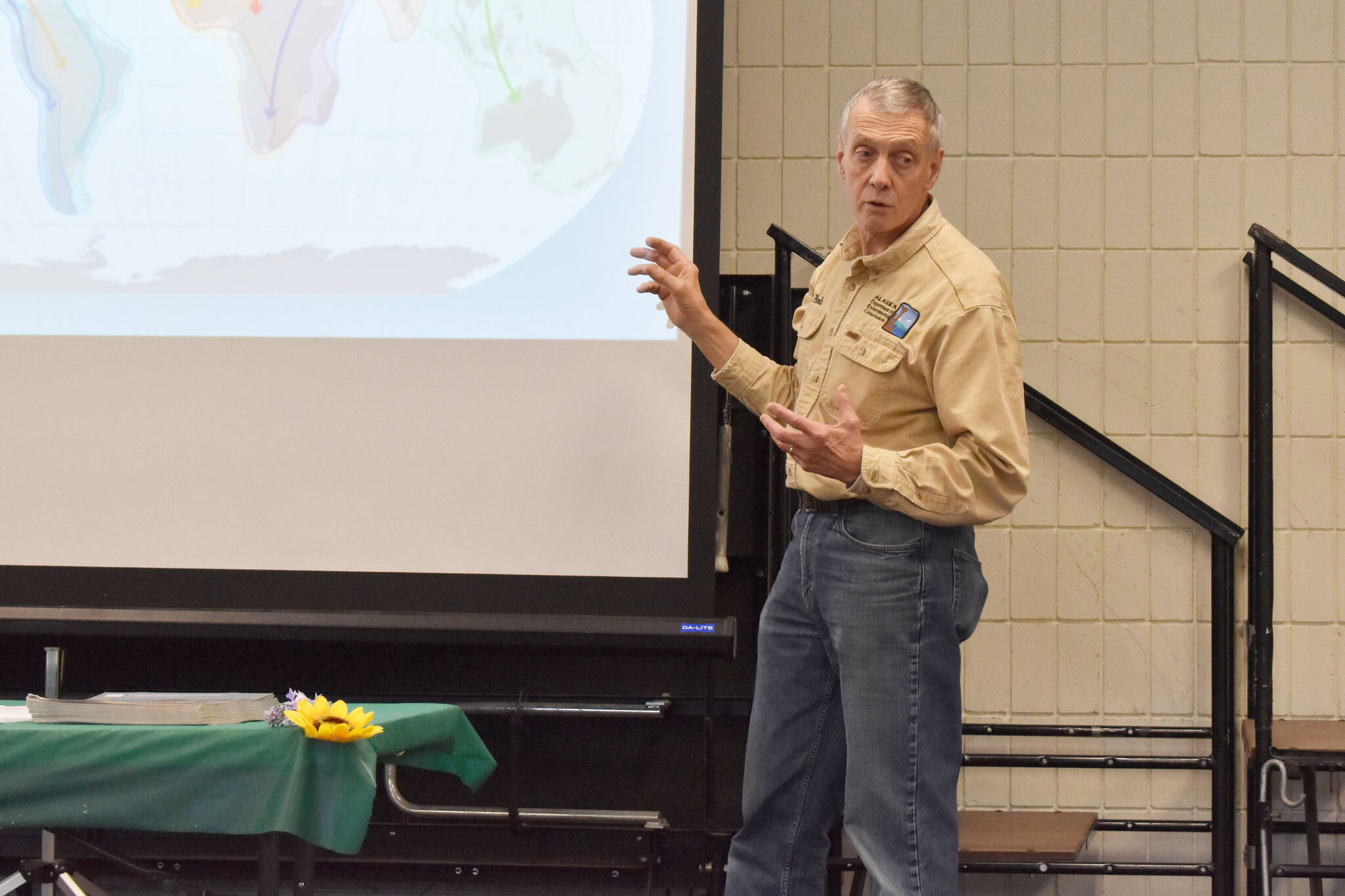An epidemiology bulletin published by the State Department of Health late last month warns of the presence of H5N1, a highly pathogenic avian influenza, in Alaska — part of an ongoing global outbreak that began in 2021.
The bulletin comes around a month after State Veterinarian Dr. Bob Gerlach said he expected the virus to return to the state with warming temperatures. Since then, only two cases have been reported, both infections detected in bald eagles.
One infected eagle was found in the Sitka Borough, early in June, and another was detected in the Prince of Wales-Hyder Census Area around two weeks ago, on June 27. No cases have been reported locally in the Kenai Peninsula Borough since Dec. 8, when another bald eagle tested positive.
Bald eagles represent the largest share of infections discovered in wild species in the state, the bulletin says. The report was compiled before the most recent eagle was reported, but still, according to that chart, bald eagles represent around a third — 32% — of all confirmed cases to date.
The next largest species share was waterfowl, around 25%. They’re followed by gulls and terns at 17% and ravens at 12%. In Alaska, five mammals have also tested positive — three red foxes, one each in Nome, the Matanuska-Susitna Region, and the Aleutians; a black bear in Glacier Bay National Park; and a brown bear in Kodiak, the first of its species to ever be reported with the infection.
The bulletin says that only one human case of the virus has been documented, in Colorado in April 2022, and that the risk of transmission is “considered to be very low.” Previous messaging from Gerlach has been that the greatest danger of the virus is the economic and food security implications of a widespread outbreak.
In the Mat-Su, five flocks of domestic poultry were found to be infected, all last year. Gerlach said his team has been stressing biosecurity and reaching out to agricultural groups to stress the importance of keeping their flock isolated from wild birds. Illness or death in backyard flocks should be reported to the Office of the State Veterinarian at 907-375-8215.
The bulletin recommends that members of the public avoid contact with wild birds. Sick or dead birds can be reported to the Alaska Sick or Dead Bird Hotline at 866-527-3358. Those who do contact a wild bird should avoid touching the face or eating before immediately washing hands.
For more information about avian influenza, visit dec.alaska.gov/eh/vet/.
Reach reporter Jake Dye at jacob.dye@peninsulaclarion.com.


